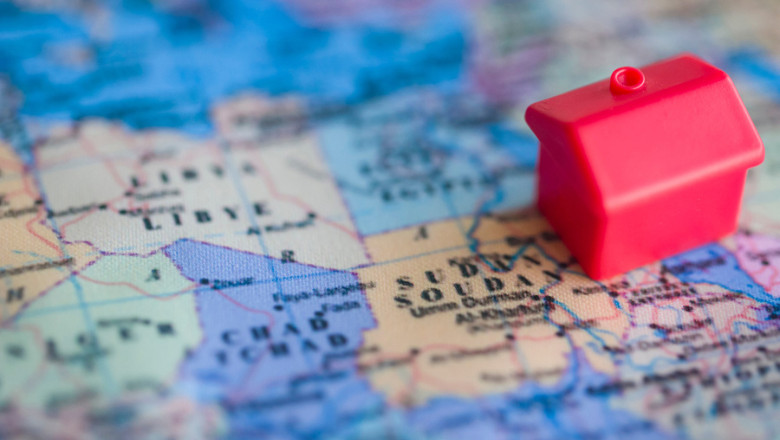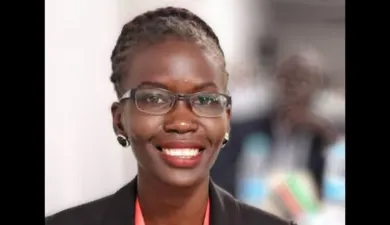For women and young girls, having access to reproductive health and menstrual hygiene products is vital. The unavailability of these services may worsen the crisis of forced displacement for most women and girls, on top of other challenges that they might face.
Catherine Vitaliano, Peace, Security and Development Fellow, African Leadership Centre
23 June 2023
Meet: Catherine Vitaliano, ALC Fellow, MSc Global Leadership & Peacebuilding
Concluding our focus on Refugee Week, we spoke with Master's student Catherine Vitaliano about the crisis in Sudan.

To date, an estimated two million people have been displaced from the Sudan, due to conflict between the Sudanese army and the Rapid Support Forces paramilitary group.
We spoke with Catherine Vitaliano, a Peace, Security and Development Fellow from the Faculty of Social Science & Public Policy about her research interest on governance and peacebuilding in South Sudan, and the potential impact of this crisis on refugees and displaced people, particularly women and children.
Tell us about your research?
"As part of my MSc. requirement, I am currently working on my dissertation on the Mutuality between the State and Citizen: A Case Study of South Sudan. The reason or drive for this research is based on my personal experiences as a South Sudanese and my involvement in the processes of nation/state building in the country. Hence, exploring the relations between the State and Citizen from a leadership study perspective is vital."

What is the difference between a refugee and a displaced person?
“Both refugees and internally displaced persons are people who are forced to leave their homes in search of refuge, because of war, persecution, or natural disasters. The difference is that refugees leave their country, whereas internally displaced persons remain within the territory of their country."
Many refugees from this crisis are women and children. What is the greatest threat they face?
"A lack of access to basic needs such as food, shelter, healthcare, and education."
How will this crisis impact neighbouring countries?
“An influx of Sudanese fleeing to neighbouring countries will have an impact on those who already have to deal with hosting refugees.
Unfortunately, most of these countries are experiencing conflicts so there will be nowhere for refugees to go. Sudan exports to its neighbours so the prices of basic commodities are sky rocketing in South Sudan. The prices of basic items like salt are high, because the country is at war.
Regarding security, there is fear that the conflict will exacerbate insecurity in neighbouring borders. If this crisis continues, it will impact the whole horn of Africa.”
What issues will refugee and internally displaced people face in the days to come?
“They will face discrimination from the host communities and won't be allowed to cross international borders. Often when you move to a different place, even Sudanese people who are coming back home, local people will look at these refugees and internally displaced people differently. Tension can grow between the host community and refugee, and this is especially true when it comes to employment.
Often people will think these new people arriving are there to take their jobs, but when you look at the children, you become more aware of the aspects of violence and possible child exploitation happening.
I have witnessed situations where young children will go to school, but their families will need capital, so these young people go to the streets and become street vendors. Earning money for their families means they lose out on a formal education."
"For many people, accessing basic things like food is essential. Exploitation is a risk especially for women and young girls. If a young woman is menstruating, they need a menstrual kit. But to not have one is a major issue and a lot of people will exploit that. They will ask for sexual favors just for that kit. Young girls can get exploited because their families cannot afford to give them those kits. It’s incredibly sad to see girls face that choice.”
Catherine Vitaliano, Peace, Security and Development Fellow, African Leadership Centre
How can people help?
“This isn’t just a Sudan problem; it is a humanitarian crisis. People can help by amplifying the voices of refugees and IDPs, put pressures on the international communities to end the crisis and donate to charities. It’s easy to feel like one person can’t make a difference, but it does help.”
